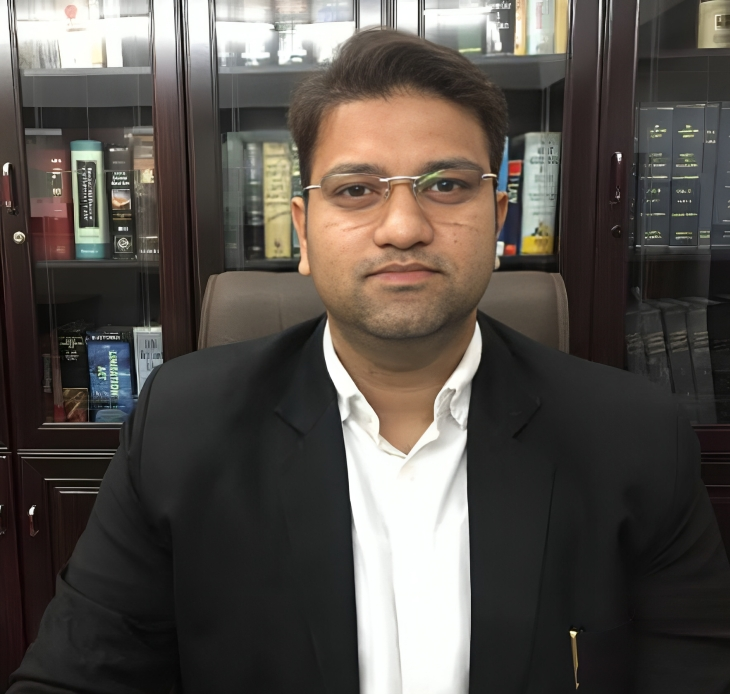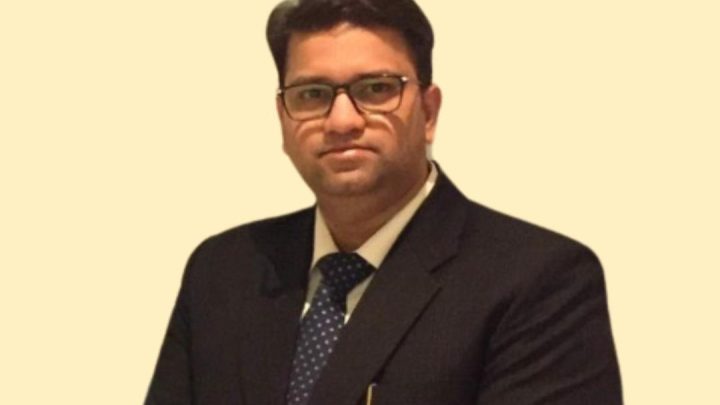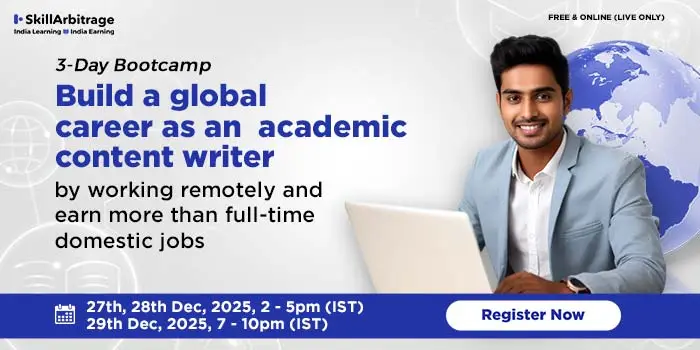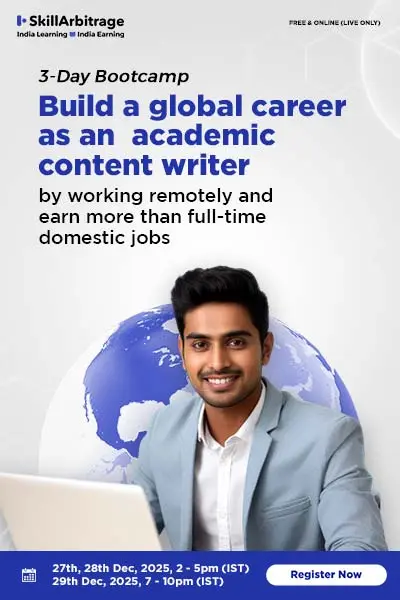Interviews
33440
0
0
“While stubbornness may be a strong word, it is essential to survive in litigation, especially as a first-generation lawyer. The key is never to say NO.” – Dhruv Kumra, Independent Legal Practitioner.
This interview was taken by SuperLawyer Team
Posted on March 15, 2025
This interview has been published by Anshi Mudgal and The SuperLawyer Team

With over 17 years of experience, what initially motivated you to pursue a career in law? Was it your first choice, or did you contemplate it later in your academic journey? Additionally, could you share your experience in law school, and how did pursuing your master’s degree further shape your professional path?
My entry into the field of law was not by chance, it was a well-thought-out decision. From childhood, my teachers and elders use to praise me for my analytical skills and attention to detail. They suggested I consider joining the field of law. When I was in 10th grade, my father took me to various career counsellors, where I underwent aptitude tests. By unanimous recommendation, the field I was advised to pursue was law. That was when I decided for certain that I wanted to pursue career in law.
After completing my 10th grade, I began preparing for entrance exams. I took entrance exams for various National Law Schools and cleared some of them. My ranking in Guru Gobind Singh Indraprastha University was good, and since I was from Delhi, I decided to pursue law here being home State.
I graduated with “First Class”. While pursuing law, I also did my PG Diploma in “International Trade and Business Law” from the Indian Society of International Law. I completed a summer course on International Trade Law at the same institution and also earned a PG Diploma in Corporate Law from Amity Law School. I also worked as a Rapporteur at the Indian Society of International Law and contributed to a project with the Ministry of External Affairs in the Legal and Treaties Division.
I was fortunate to receive a conditional offer for admission to the prestigious London School of Economics (LSE), one of the world’s most esteemed institutions. I also received admission to the National Law School, Bangalore, for an advanced course. However, I couldn’t pursue it because I became deeply involved in litigation.
I always wanted to pursue my master’s in London, and I collected numerous brochures during seminars. But, as they say, “Destiny” intervened. In my last semester, I had to undergo an internship, and I was fortunate to secure an internship with an Advocate-on-Record at the Supreme Court of India. This was when I decided to postpone my aspirations to study abroad, as I got deeply engrossed in court work, and the desire to pursue a master’s degree faded.
After almost 15 years in the profession, I finally did my master’s. Alternate Dispute Resolution (ADR) has always been close to my heart, so I pursued an LLM in ADR. Doing my LLM in this field allowed me to go back to the basic textbook style of learning, while my professional experience helped me understand the subject better and connect with it.
During the early stages of your career, you must have encountered numerous valuable learning experiences. Can you highlight one particular experience that has stayed with you, and how did you navigate through the challenges of those formative years in your profession?
This is one of those professions where challenges arise every minute, so one has to be ahead of the curve at all times. Even while drafting, you must put yourself in the shoes of the other side to anticipate what their response might be. As they say about the art of cross-examination, “Don’t ask a question to a witness until you know what answer the witness will give.”
Law is a profession where every day is a new learning experience. One simply has to remain open to it. While “stubbornness” may be a strong word, it is essential to survive in litigation, especially as a first-generation lawyer. The key is never to say “NO”. I’d like to quote Sylvester Stallone from Rocky Balboa (2006): “It’s not about how hard you get hit; it’s about how hard you can get hit, how much you can take, and keep moving forward.”
Honestly speaking, there is nothing like “formative years” in this profession. You never truly settle, you comparatively settle. Instead, one reaches a point where you become more cautious because more eyes are on you, and one wrong move can be detrimental. As you gain more years in the profession, you become more cautious, as people are watching and waiting for you to make a mistake.
One learning which I got was, Court is the new class room , try spending as much time possible listening to arguments in matters. Court room is one such place where many facets law and facts are discussed and subconscious mind silently develops legal aptitude.
What inspired you to establish your independent legal practice, and what were the initial challenges you encountered while setting it up? How did you navigate through these obstacles, and what strategies or lessons learned during this phase have contributed to the growth and success of your practice today?
The initial challenge is always managing daily expenses, especially in the early days. However, this was not much of an issue for me, as I am a workaholic and found ways to secure work to keep myself going. There is no shortage of work in this profession, but one must be willing to take on challenges and spend sleepless nights.
The advice I would give is that if you develop a skill, there’s no looking back. There are no shortcuts in law, one must work hard to chisel your abilities.
In your experience as panel counsel, could you share your experience working with organizations such as the Delhi Development Authority? What variety of cases did you deal with, and were there any particularly interesting cases?
I have served as panel counsel for various government departments, including the Delhi Development Authority (DDA), Indian Tourism, LIC Housing Finance Limited, Delhi Legal Services Authority, and as Amicus Curiae with the Delhi State Consumer Commission, among others.
Serving these government departments gave me extensive exposure to a variety of cases, including real estate, consumer, matrimonial, and criminal matters. This experience helped me understand the workings of government departments, particularly how files move within the system and the importance of an internal Office Noting.
Every case is unique , so talking about one would undermine others. In one case, I was defending a landlord against a tenant who was very intelligent. Before cross-examination, the opposing counsel whispered to his client to deny everything. The opposing counsel was so confident in his client’s preparation that he sat at the back of the courtroom.
I confronted the witness with his signatures on the suit, and the very natural answer was that they weren’t his. This simple answer won me the case, as it invalidated the plaint. Immediately afterward, the other side tried to file an application to bypass the situation, but the damage was already done.
With your extensive experience serving both private clients and government departments, how do you manage the differing legal needs of these two client types while upholding the same level of dedication and excellence in your service?
Whether representing private clients or government entities, the law remains the same. However, there are different demands based on the client type.
For instance, for a private client, developments in a case can often be communicated via phone, and that would suffice. For a corporate client, each step must be explained in writing, and updates must be communicated via email to all relevant stakeholders. Similarly, when working with the government, you must ensure that every action is recorded in the official file and directed to the correct officer.
A lawyer dedicated to their work will treat both private and government clients with the same level of service. Both types of clients ultimately want to win and be represented effectively.
Reflecting on your extensive legal experience, what has been one of the most intellectually challenging or intriguing cases you have handled? How did you approach the case in terms of legal strategy, preparation, and research, and what key insights did you gain from navigating such a complex legal matter?
All cases are challenging and teach you something new. With each case, we return to the drawing board to research every aspect of it.
At times, lawyers become so focused on a case that they lose sight of the core issue. For complex matters, we often peel back the layers one by one, only to realize that the issue was simpler than initially thought. The key to cracking a case is to follow the old-school method, read the file carefully without focusing on the law first, understand the facts, and then apply the law.
In your experience working with corporate entities and managing cases related to real estate laws, what key pitfalls do these entities often encounter? What proactive measures or legal safeguards would you recommend to mitigate these risks from the outset, ensuring smoother transactions and compliance throughout the process?
Faulty paperwork and inadequate due diligence are common problems in real estate matters. Many clients have projects in different states, and each state has its own peculiarities regarding record-keeping, such as local language requirements or state notifications, which corporate entities may overlook.
While due diligence is generally conducted when purchasing land, local experts familiar with regional laws should also be involved in the process to ensure proper compliance.
Balancing a demanding legal career with personal life is undoubtedly challenging. How do you maintain a balance between your professional commitments and personal well-being? What strategies do you employ to preserve your health and overall well-being while excelling in such a demanding profession?
It is indeed very difficult for a first-generation lawyer to maintain a balance between personal and professional life and give equal attention to both. A first-generation lawyer faces many challenges, such as engaging and retaining competent staff, as well as maintaining an office, which many second or third-generation lawyers don’t face.
One must work late nights, miss family engagements, and be available even on holidays to meet clients’ needs and deliver timely services. Additionally, corporate clients often work in different time zones, so we must be available 24/7 to respond to queries or emails.
No doubt, this takes a toll on one’s health—grey hair and signs of aging appear earlier than expected. However, the adrenaline rush that this profession provides compensates for the physical toll. Post-COVID, work has become easier in some ways. Virtual hearings and digital tools have made it possible to work from anywhere in the world, making it more convenient for lawyers, especially first-generation ones.
With your expertise spanning multiple legal domains, what advice would you offer young lawyers aspiring to develop a diverse practice similar to yours? What essential skills and qualities do you believe are necessary for success in these competitive and multifaceted fields?
Discipline and consistency are the most important qualities I would recommend to any young lawyer entering the profession. By discipline, I don’t mean waking up at 5 a.m. and working late nights, but maintaining a consistent level of reading. Whether it’s law books, self-help books, or spiritual texts, consistent reading is crucial for any lawyer. Without it, a lawyer will not be able to make a mark professionally.
So, be consistent with your reading, stay true to your work, and always advise your clients to the best of your abilities—not just to draw money from them, but to provide the right advice. Gone are the days when lawyers could manipulate clients for unnecessary fees; today’s clients often come prepared with knowledge from resources like Google.
This experience reinforced the idea that litigation is a double-edged sword. Your success or failure often depends on both your preparation and your client’s actions. A well-read lawyer will earn the respect of judges and peers alike, and this silent appreciation will aid your future success.
Get in touch with Dhruv Kumra –







No comments yet
Be the first to share your thoughts about this interview.